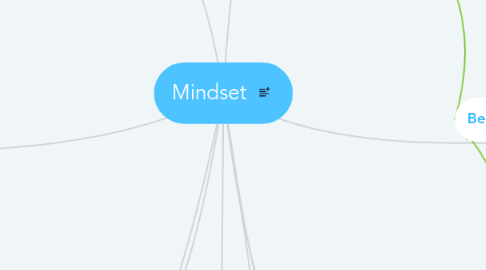
1. Benefits
1.1. Identity not associated with outcome.
1.1.1. "a growth mindset knows that their performance is not the only indicator of who they are."
1.1.2. What is identity made of?
1.2. Can convert exogenous variables into endogenous variables.
1.3. Persistent
1.4. Because of this ability to convert variables, the ability to cope with risk increases.
2. If you shot 10,000 free throws, would you become Lebron James?
3. Growth Mindset
3.1. "A growth mindset, however, believes that challenges and learning are opportunities, and that failure is an opportunity for growth."
3.2. Diction Associated
3.2.1. "I ___Positive Word _ __Action Desired____
3.2.1.1. Example: “I wonder what I could do differently to get a different outcome? How can I change and grow here to improve my game?”
4. Disadvantages
4.1. If you can learn everything, it can be hard to select what to learn
4.2. Slow
5. Yes. You would become Lebron James because talent is such a little factor of the equation. Nurture takes precedence over nature.
6. My Stance
6.1. My Stance: You could in theory reach Lebron James' basketball level if you had an infinite amount of time, and it was only about shot completion percentage. However, when you add in the real world contingencies of time and money, the answer is much different. The NBA required that you produce X amount of value in order to be paid a salary, so you would have to reach LJ's sum of Talent + Skill Output, under the constraint of time. If you begin with less talent, the return on investment isn't valuable enough(assuming you could match his output) to pursue for some individuals.
7. Benefits
7.1. Speed-Because you know what you are talented at, It is much easier to categorize something as not worth doing, therefore, you would have less tasks to complete.
7.2. Comfort-Less risks are likely taken due to the affiliation of the outcome and the identify o the individual. Less challenges would lead to more comfort.
8. Disadvantages
8.1. Pick and choose feedback, don't ever get a synthesized answer
8.2. Quit easily
8.3. "Whereas a fixed mindset affixes their identity to the outcome..."
8.3.1. “You’re terrified of losing and performing badly, because to you, you are your performance. When you perform badly, you’re devastated, because you, by association, are now no longer valuable or special.”
8.3.1.1. Value Exchange Philosophy
8.3.1.1.1. The thought process I currently embrace is as follows. In order to receive something of value, something of equal or greater value must be exchanged.
9. Fixed Mindest
9.1. "In a fixed mindset, you come to believe that your skills, traits, and talents are fixed."
9.2. Diction Associated
9.2.1. "I ___Negative Word _ __Action Desired____
9.2.1.1. Example: I'm not a good athlete
9.2.1.2. Example: I can't dance
9.2.1.3. Example: I'm a terrible singer
9.2.2. Either/Or, black and white thinking
9.2.2.1. Example: "There were artists, and then there were other people"

